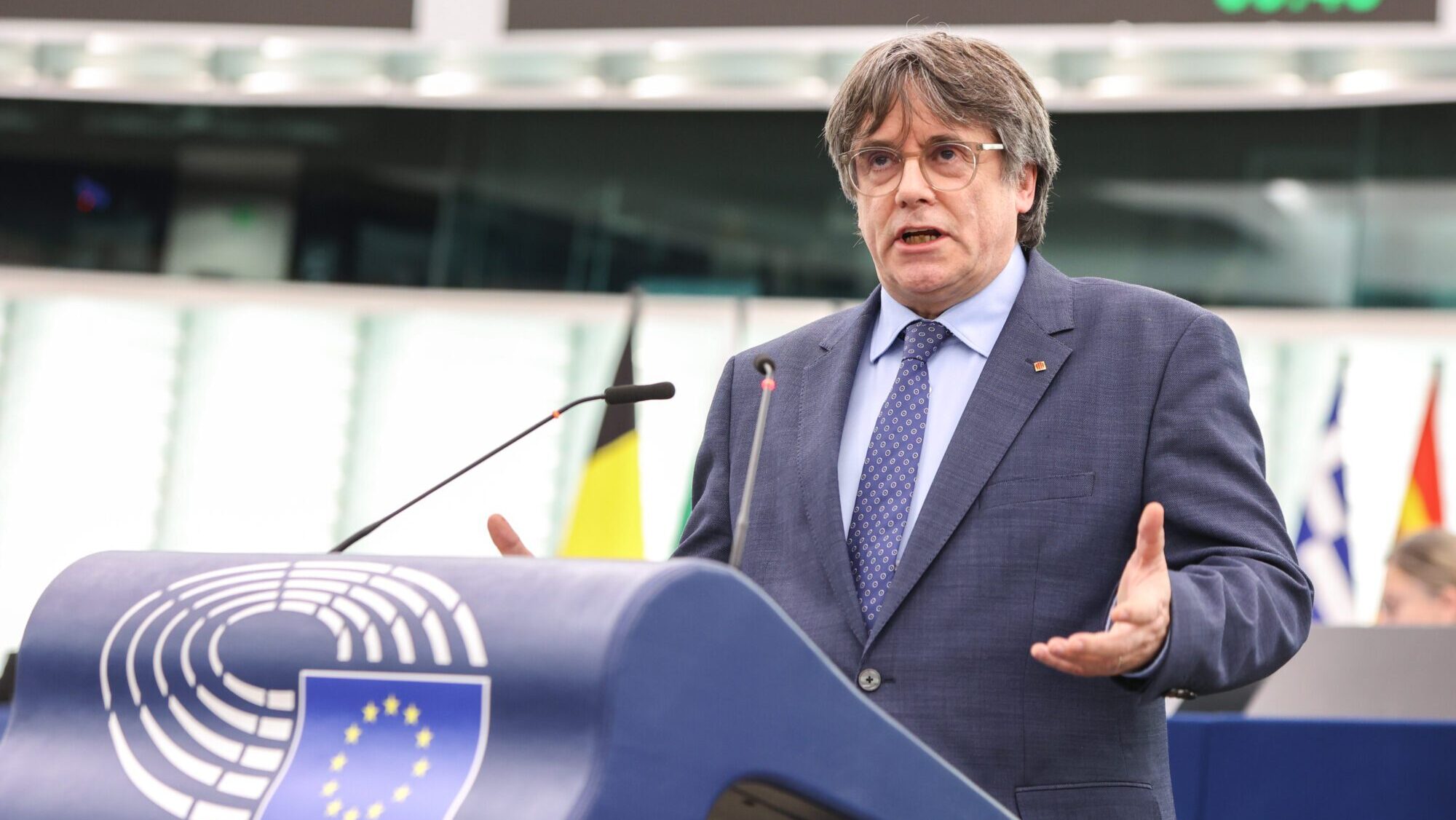
Spanish MEP and former Catalan regional president Carles Puigdemont
Photo: Frederic MARVAUX © European Union 2023 – Source : EP
Spanish MEP Carles Puigdemont has confirmed that he will be his party’s candidate for the regional elections on May 12th. “I’m going for it all,” he declared, aiming to prove wrong “the delusional gravediggers of Catalonia.”
Announcing his candidacy in Elna, France—to a crowd of a thousand people that greeted the news with shouts of “President!”—he also made clear his real motive for attempting to return to the helm of the regional government in the Spanish autonomous community of Catalonia.
Puigdemont called his candidacy and potential re-election to the regional presidency the “restitution of the presidency of the Generalitat [the Catalan government],” and a means to “finish the work” blocked by Spain’s central government in 2017—in reference to what Catalans called the independence process. He also told the crowd that he hoped to win an absolute majority, though admitted it would take a lot of mobilization to ensure such an outcome.
Puigdemont added that if he won the elections, he would return to Spain and attend parliament to form a government, regardless of the state of the so-called amnesty law—which has now almost passed through the legislative process and is expected to go into effect in May 2024.
Puigdemont is not disqualified from running for office under Spanish law, despite having a warrant out for his arrest. He was president of Catalonia in 2017 and, from that position, led the illegal referendum on Catalan independence. In response, the central government—then under the leadership of the center-right Partido Popular—invoked Article 155 of the constitution, which allows Madrid to intervene in governance of the region. Puigdemont fled the country and has remained in Belgium as a fugitive of Spanish justice ever since. From Brussels, he has remained head of his Junts per Catalunya party and has continued to direct the separatist movement from afar.
Since then, his party, which holds seven seats in the national parliament, has become a key player in Spain’s fragmented political landscape. Its seven votes ensured that socialist Pedro Sánchez could form a government again following elections in July 2023, despite his party having finished second to the PP. The price Sánchez has to pay to Catalan separatists, though, is granting amnesty to Puigdemont and other Catalan nationalists.
Sánchez has sold the amnesty as a way to end the Catalan independence issue and “normalizing” the situation in the region, despite the legal hurdles and constitutional challenges it still faces, but separatists have made clear their intentions are completely different. For them, amnesty is nothing less than the first necessary step in holding another referendum and seceding from Spain.
Once again contradicting Sánchez’s claims, Puigdemont—who since the 2019 elections is also an elected member of the EU parliament—said that currently, Catalonia “had a historic opportunity.” Additionally, should referendum negotiations with Madrid drag on, “we will not renounce independence in any way, if it is the will of the Catalans,” he said, alluding to the possibility of another unilateral referendum. “We have to do better,” he added, in reference to the last unilateral referendum in 2017. “It would be unacceptable if we did not prepare better.”
On balance, the politician who seems least prepared for such a scenario is Pedro Sánchez himself.
